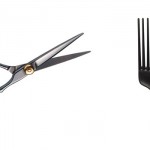
In today’s fast-paced world, juggling multiple responsibilities can make it challenging to maintain a clean and healthy lifestyle. However, with the power of meal planning, you can reclaim control over your diet and achieve optimal well-being. In this article, we’ll explore the process of meal planning, providing practical tips and strategies to help you incorporate nutritious, culturally diverse meals into your life while embracing a clean lifestyle.
Set Your Goals:
Before embarking on the meal planning journey, it’s essential to define your health and wellness goals. Determine whether you want to lose weight, maintain a balanced diet, explore new culinary experiences, or support your fitness routine. Identifying your goals will help you design a meal plan tailored to your unique needs.
Take Inventory:
Conduct a thorough inventory of your pantry, refrigerator, and freezer. Assess the ingredients you already have on hand, considering their nutritional value and expiration dates. This step will enable you to minimize waste and make the most of what you already possess.
Embrace Fresh and Local Produce:
African cuisine is known for its vibrant array of fruits, vegetables, and grains. Explore local markets to find fresh, seasonal produce that not only supports your health but also connects you to your cultural roots. Opting for organic and locally sourced ingredients whenever possible enhances the overall nutritional value of your meals.
Plan Your Meals:
Consider your lifestyle and schedule while planning your meals. Start by determining how many meals you need to prepare each day, whether it’s three square meals or smaller, more frequent options. Create a weekly meal plan, including breakfast, lunch, dinner, and snacks. This structure will help you avoid impulsive and unhealthy food choices while ensuring you meet your nutritional requirements.
Mix It Up:
African cuisine is incredibly diverse, with a rich tapestry of flavors, textures, and cooking techniques. Embrace this diversity by incorporating a variety of grains, legumes, proteins, and vegetables into your meal plan. Experiment with different spices and herbs to add depth and authenticity to your dishes.
Prep Ahead of Time:
Spend a dedicated time each week prepping ingredients and meals in advance. Chop vegetables, cook grains, marinate proteins, and portion out snacks. Preparing these components ahead of time will save you precious minutes during busy weekdays and encourage healthier eating habits when time is limited.
Create a Shopping List:
Based on your meal plan, create a comprehensive shopping list that includes all the ingredients you need. Stick to this list while grocery shopping to prevent impulse purchases and ensure you have everything you need to follow your meal plan accurately.
Stay Mindful of Portions:
Maintaining portion control is crucial for achieving and sustaining a clean lifestyle. Use smaller plates and bowls to help control serving sizes and prevent overeating. Balancing your plate with a mix of whole grains, lean proteins, and colorful vegetables will ensure you’re obtaining a well-rounded meal.
Celebrate Balance, Not Perfection:
Remember that meal planning is a tool to support a clean lifestyle, not a rigid set of rules. Allow room for flexibility and indulgence occasionally. Celebrate small victories, and don’t be too hard on yourself if you deviate from the plan occasionally. It’s all about finding the right balance that works for you.
By adopting the recommended tips above, meal planning can simplify your life while ensuring you nourish your body with wholesome meals. With patience, practice, and an open mind, you can master the art of meal planning.






